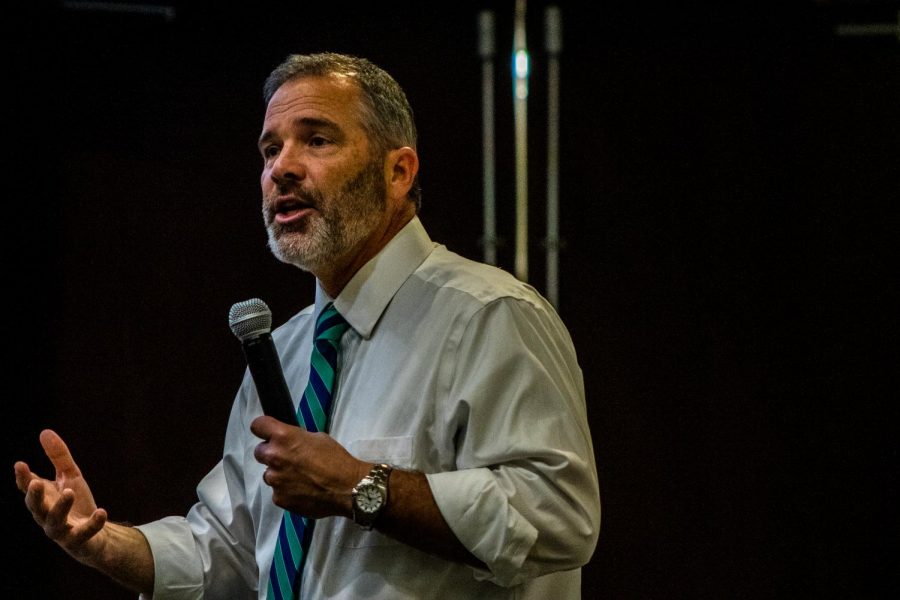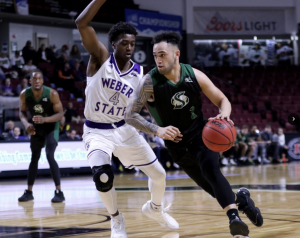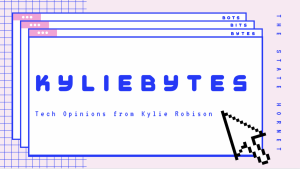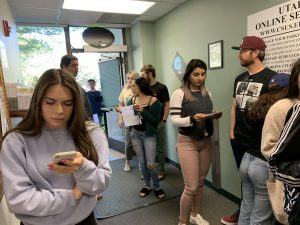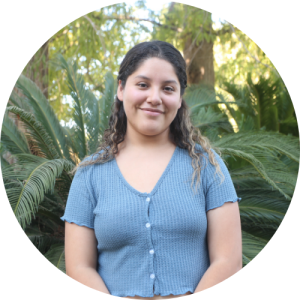Sac State Faculty Senate meets to discuss online class transition amid coronavirus concerns
Provost Steve Perez in the University Union at Sac State on Thursday, March 12, 2020. He fielded questions from the Faculty Senate on the handling of future virtual instruction, as the university shifts to online courses due to COVID-19 concerns.
March 12, 2020
Hours after Sacramento State President Robert Nelsen sent out a SacSend email suspending next week’s classes and transitioning most courses to online only, the Faculty Senate held a meeting with faculty and students to discuss their concerns.
A general concern that was asked by Andrew Hertzoff, a political science professor, was about the kind of resources that would be provided to professors during this online transition.
Provost Steve Perez said that the purpose of the week-long suspension of instruction was to give staff time to get comfortable with an online class setup.
“We have one job to do next week and that is to get 1,500 faculty ready to teach online,” Perez said.
RELATED: Sac State to suspend most in-person classes over coronavirus concerns
He said that seminars would be offered to staff during the suspension to further clarify any confusion with Canvas or Zoom, an online video-chat program that professors have been encouraged to use for the continuation of their classes.
Perez said professors can choose to have face-to-face interaction with students online during their regularly scheduled class meeting time.
Jeff Dym, a history professor, raised concern for students who have limited accessibility to computers or Wi-Fi, both crucial to the online transition and what professors should tell those students to do.
“Campus is staying open,” Perez said. “People have this impression that services and campus is going to close, but that is not what we’re saying. Instruction is moving online so that we can minimize the amount of interaction and congregation.”
He added that the AIRC, The WELL and computer labs will remain open for the rest of the semester. Academic advising and on-campus housing services will continue throughout the semester.
Mark Hendricks, interim vice president of Information Resources and Technology, said additional laptops are in the process of being scanned into their system and will be available for students to rent out for extended periods of time outside of campus.
In terms of staff office hours, faculty were told to use personal discretion on whether or not they felt comfortable holding in-person meetings with students.
Nelsen said signs were in the process of being made to hang around school to remind students of social distance and mindfulness during the COVID-19 pandemic.
A general discussion was had in regards to a policy and resolution about suspending academic policies that would be necessary for professors to restructure their classes.
Sharon Furtak, a professor of psychology, and Hertzoff expressed their concern that suspending current academic policy provisions, like the effort for a professor to stick to their syllabus or uphold office hours, would cause problems for staff and students.
Furtak expressed that the way the policy change was written, left the possibility for students to feel as if they had no say in how their semester would play out.
Several other senators concurred and no vote or motion was taken on the policy proposal.
Before the meeting adjourned, Susanne Lindgren, a biological sciences professor, made a motion for the Faculty Senate to continue to meet in a hybrid manner, both over Zoom and in person, to discuss policies that are still relevant to the senate committee, regardless of COVID-19.
The motion passed.
The next Faculty Senate meeting is pending and information on how the campus will continue to function over the rest of the spring semester will be provided in the weeks to follow.






























































































































